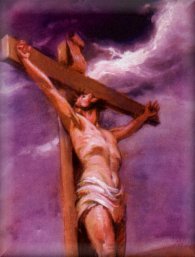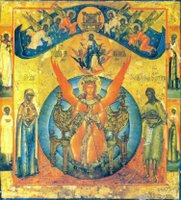 Our good friend Radhakrishn and his wife had a new baby daughter, Riya, their first-born, on October 2, 2006. This Sunday, they will have a special feast to welcome her, and Radha asked me to give Riya a blessing. To the best of my ability I may have the opportunity to speak a blessing over her by telephone this Sunday morning. But in case this is not possible, I have written a blessing that is what I would speak over her, if I could.
Our good friend Radhakrishn and his wife had a new baby daughter, Riya, their first-born, on October 2, 2006. This Sunday, they will have a special feast to welcome her, and Radha asked me to give Riya a blessing. To the best of my ability I may have the opportunity to speak a blessing over her by telephone this Sunday morning. But in case this is not possible, I have written a blessing that is what I would speak over her, if I could.Riya, Riya, rejoice in the Lord,
In the living God, the First, the Last,
Who was, Who is, Who is to come!
The Almighty protect you,
The Maker of heaven and earth provide for you
All things seen and unseen!
The Lord, the Son of God, call you,
The Light of light show Himself to you,
The Slain before all worlds save you!
Be a blessing to your father, mother and brothers,
Be the good earth, receiving the seed of faith,
Be a fruitful vine, bearing good fruit for others!
Walk in the Way that does not stray,
Go through the Gate that does not close,
Stand on the Rock that does not move!
Light for your eyes,
Good News for your ears,
Beauty in your smile,
A song on your lips,
Healing in your hands,
Safety in your steps,
Life, long and full,
Friends sent only by the Lord,
And a thankful heart
Be the adornment of God’s child, Riya!
The Lord God bless you out of Zion,
He who made the heavens and the earth!
Amen!
























